|
A newly released ad from the Trump campaign paints Joe Biden as being soft on China. The ad shows a ghastly colorized photo of Joe Biden, with the bolded text “BIDEN STANDS UP FOR CHINA” displayed across the former Vice President’s face.[1] The Biden campaign’s response has been to criticize Trump’s trade war on China, which they argue has hurt working Americans, particularly farmers. Biden’s Campaign has promised to unite with allies, who they say the Trump administration has alienated, in order to make a bilateral effort towards putting pressure on China. What is missing from the 2020 candidates, is an electoral option that doesn’t engage in economic warfare with China at all. Many Chinese people recognize that this year’s US elections offer a choice between two Chinese foreign policy Hawks. Deputy Director of the Lian An Academy think tank in Beijing, Yu Wanli says in an interview with South China Morning Post “Mr. Biden has never been a China Friendly guy and China knows it, but at least Biden is open to negotiation.”[2] The Chinese public may be more optimistic about a Biden Presidency, than another four years of Trump, who remains openly hostile towards the country. However, the people hold no false hope that Biden will be friendly towards China, and will continue to put pressure on the country, if only in a different way. With the choice between two hawkish administrations, I have become fearful that the United States could be heading towards war with China. Not a trade war through sanctions and tariffs, but a hot war with drone strikes, and the potential for the second use of nuclear weapons as a weapon of war in human history. No matter your feelings on China, or the Chinese Communist Party, everyone can acknowledge a war between the United States and China would be devastating on a human level. The goal of this article is to explain why US leaders are so hostile towards China, and why every US citizen should resist war with China at all costs. An Abbreviated History of US- China Relation Let us run through a brief history of US-China relations, starting from the Communist revolution in China led by Mao Zedong from 1948-1952. In the Chinese Civil war, Mao and his communist party fought mostly against the Kuomintang Nationalist Party. Both parties supported Chinese independence from the Japanese, but Mao’s party wished to establish a Marxist economic system, while the Nationalists would continue with capitalism, albeit capitalism independent from Japanese colonizers. The United States heavily funded the Kuomintang Nationalist Army, which was formed in Taiwan, and remains independent of China to this day. The Chinese Communist Party on the other hand received funding from the Soviet Union, making China one of the many proxy battlefields that came about during the Cold War, and the ideological war being waged between Communism and Capitalism. By 1949 the Communists controlled most of China, and the war began to draw to an end. When the fighting ceased an estimated 1.5 million communists, 600,000 nationalists, and 5 million civilians, had been killed. [3] Following the Communist victory, and establishment of the People’s Republic of China (PRC) in 1949, Harry Truman and the United States refused to recognize the new Chinese Government and continued funding the Kuomintang in Taiwan. Additionally, the PRC and United States fought against each other during both the Korean and Vietnam wars. [4] Wars which were also proxy battlefields between the Capitalist and Communist nations during the Cold War. It is worth mentioning that Mao Anying, the son of PRC leader Mao Zedong, was killed by a US airstrike during the Korean War.[5] Relations between China and the United States following the Chinese civil war were marked by hostility, and warfare, which was fought on the proxy battlefields of Korea and Vietnam. However, in the 1970s relations between China and the US would take a turn. By 1970 China had emerged as an important geopolitical player, including increasing steel production by four times. In addition, agriculture had skyrocketed in the country. Despite many who died during the famine which occurred during implementation of Mao’s Great Leap Forward policy, the country did in the end greatly increase agricultural output.[6] Another factor in the increase of US China diplomacy, was the fact that China had split with the Soviet Union, after the Khrushchev’s denunciation of Stalin’s foreign policy. This originally turned the Cold War from a Bi-polar, to a tri-polar war. However, it would eventually allow the US and China to repair relations, now having the USSR as a common enemy of sorts. In 1972 Richard Nixon travelled to the Peoples Republic of China to speak with Chinese leadership for the first time in 25 years.[7] At this point, relations between the countries became more diplomatic than ever before. This would only increase with the rise of Deng Xiaoping as leader of the PRC in 1978. China’s rapid industrialization had US business interests salivating at the opportunity to gain access to Chinese markets. At this point Deng made one of the most important geopolitical decisions of the 20th century, choosing to open China to foreign capital. Deng himself was exiled by the Cultural Revolution of Mao before rising to power in the Communist Party. While in Power he denounced both Mao, and the Cultural Revolution, and proposed a new economic path for China. China would remain a Marxist-Leninist state, striving for the creation of socialism. However, they would simultaneously allow foreign capital into the country. In addition, Chinese State-run industries, such as steel, would begin trading goods on the global market, and use the revenue to reinvest in China. Deng’s reforms brought US- China diplomacy to its peak. The US seemed to have no problem with China’s Marxist ideology, so long as US capital was allowed to make a profit in China. In 1978 Jimmy Carter announced that he US would recognize the People’s Republic of China for the first time in history.[8] The US and China had seemingly found a sort of middle ground between Marxist and Capitalist ideology. However, the US may have underestimated the speed and extent to which China would continue to grow. Over the next 40-year period, China has continued to grow their economy. Currently China is the second most powerful economy on the planet, with a GDP only bested by that of the United States. China has come to dominate the steel industry globally through their state-run steel companies. [9] This allows vast amounts of money to flow to the Chinese state, which is of course, reinvested in China. In addition, China’s tech sector has expanded at an astounding rate, now making up 30% of the Chinese GDP.[10] China’s centrally planned economy has allowed them to put the most resources into sectors of the economy which are the most lucrative on the global market. A positive effect of China’s rapid growth has been the raising of 850 million people from poverty, according to the World Bank. [11] The Playbook for US Foreign Intervention So why, in the year 2020, are tensions between the US and China escalating once again? The answer, as is the case with most US foreign intervention, can be found by studying the current situation of the global economy. The US playbook on foreign intervention since the mass public outrage sparked by the brutality of US forces in Vietnam, has been to portray whatever regime the US wishes to overthrow as an unimaginable evil, who are oppressing their country’s civilians. The US then postures as the hero in this situation, asserting that we will use our vast military power to overthrow the evil regime, and liberate the oppressed civilians. The war in Iraq offers a salient example of this strategy, as the US public was promised the war would be a short campaign to overthrow Saddam Hussein, liberate the Iraqi people, and then withdraw US troops. Former Secretary of State Donald Rumsfeld famously said of the intervention in Iraq “Five days, five weeks, or five months, but it certainly isn’t going to last any longer than that” [12] Fast forward 17 years from Rumsfeld’s comments, and the United States remains in Iraq, trying to stabilize a region thrown into chaos after the overthrow of the regime in power. Even most corporate media outlets now admit the Iraq war was fought for control of Iraqi oil. Prior to the invasion US media uniformly told the public that the goal of intervention in Iraq was to overthrow the brutal dictator that was Saddam Hussein, when in reality the goal was to free up new oil markets for corporate America to exploit. Journalist Antonio Juasz explains in his 2013 write up on the war that “Before the 2003 invasion. Iraq’s domestic oil industry was nationalized and closed to Western oil companies. A decade of war later, it is largely privatized, and utterly dominated by foreign firms.”[13] The report was published by CNN, who now openly admit the catastrophic role they played in pushing public opinion towards support for war in Iraq. However, CNN claims that the press has learned from their mistakes.[14] This claim is false. The corporate media have continued to use the same playbook from Iraq, to push for more US intervention abroad. This includes China, who corporate media now portrays as possibly the greatest evil of the 21st century. The Economic Reasoning for US Sponsored Regime Change in China So, if the economic basis for regime change in Iraq was oil, what is the true motivation, or economic basis, for regime change in China? As we said earlier, China has gone from a colonized nation to the second most powerful economy on earth in the 70 years following the Communist Revolution. While the US developed a cooperative relationship with China following Deng’s decision to open China up to foreign capital, China has now begun to challenge the United States as the world’s leading economic superpower. Since the fall of the Soviet Union in 1991, the United States has felt little resistance to their economic global dominance, nor their policies of military intervention in foreign countries. That is quickly changing however, as now in the year 2020, China provides the US with a rival in geopolitical dominance. The newfound competition between pro Communist China, and the pro Capitalist United States, is creating a sort of 20th century cold war between the two nations. The Chinese tech sector clearly presents a challenge to US tech, where companies like Apple have long dominated the Global tech market. Kenneth Lee of the South China Morning Post writes “For the past few decades, the US market has dominated the listing of technology stock” He goes on to say later “However, investor interest in the United States- and the resulting effect on share prices- has been declining for Chinese Issuers”[15] It is clear that Chinese based tech companies are now challenging US companies in an unprecedented fashion. Tech giants such as Apple now face stiff completion from the Chinese phone producers Huawei and ZTE. In a letter to Shareholders, Apple CEO Tim Cook wrote “Lower than anticipated iPhone revenue, primarily in greater China, accounts for all of our revenue shortfall.” [16] US tech companies are no longer profiting from China’s policy of allowing foreign capital inside the country. Chinese companies are simply offering a better product, cutting into the revenue of firms like Apple, who are accustomed to seeing revenue from selling their products to China’s population of 1.3 billion. Apple was recently outed for purposely slowing down their phones when users update the IOS software. This of course would encourage IPhone users to buy the newest version of the IPhone, in order to have a fully functioning device.[17] It should come as no surprise that Chinese citizens with a better alternative available to them, would stop purchasing from apple, and instead buy a phone that won’t break when updated. However, rather than creating a better product than the Chinese companies, the way advocates of the so called “free market” argue that firms will always do, US tech giants have begun pressuring the Government to use sanctions, and other methods to hamper China’s economy. This, as well as other economic sectors such as agriculture, are what have been the true motivation for Trump’s trade war being waged against China. The tech industry spends $582 million lobbying the US government for this purpose exactly.[18] When big tech loses their stranglehold on a foreign market, they can call in the state apparatus to do something about it. If economic sanctions fail to reestablish US tech dominance in China, it is likely that the US tech sector will begin pushing the Government towards real military intervention. This is why I have chosen to write this article. To argue to my fellow Americans that risking a hot war between the two largest world superpowers, is not worth increasing the profits of the already vastly wealthy US tech giants. US Media Reasoning for Regime Change in China A simple google search of China will reveal that the US media has begun reporting frequently on human rights abuses committed by the Chinese Government. The Chinese are typically described in Western Media as authoritarian, a dictatorship, a “regime”, and it is frequently mentioned that they are communist, or Marxist. This is wording the Media uses to invoke fear, or negative feelings towards foreign governments. Fear is a powerful emotion, which often can override our critical thinking skills. If the American public fears China, they are more likely to support regime change in the country. Prior to the Covid-19 breakout, which President Trump has dubbed “Kung Flu”, in an attempt shift blame for the pandemic from himself onto China, the primary criticism the US media used to spread contempt towards China, is the Chinese Government’s treatment of Uygur Muslims. A quick google search will show that any US media outlet in existence can be found condemning China’s treatment of the Uyghurs. The media claims that China is doing a genocide of the Uyghur Muslim population, attempting an ethnic cleansing of the Uyghur people. Atrocities such as forced sterilization are among the list of accusations being hurled at the Chinese Government by the West. Recently, 22 Western countries signed a letter condemning China for their treatment of the Uyghurs. On the other hand, 37 countries, more than half of which are Muslim majority nations, have come to China’s defense. China, and the nations who support them, claim the camps are ethically run vocational training facilities, which also focus on de-radicalization from extremist ideology. They claim that this was a response to a spike in extremist terrorism committed by the Uyghurs. Honestly, I’m not here to tell you which side is correct. I have never been to China, I’ve never investigated the Uyghur territory, and therefore, I will not pretend that I have enough knowledge to inform you about what exactly is happening. However, I will tell you that it is extremely naïve to believe that the United States Government cares deeply for the Human Rights of Muslims. If the US had such respect for the lives of Muslims, they would not have invaded Iraq, killing over 200,000 Muslim Civilians.[19] If the US really feels they must protect Islamic people, then why are they funding a bombing campaign in the Islamic country of Yemen, which targets the water sanitation facilities that Yemeni Civilians depend on?[20] Friends, I am not arguing that China is a perfect country, who are above criticism. What I am telling you is that the United States is following the exact same playbook in China, as they have with every other foreign intervention since World War 2. They claim that a state enemy is committing unimaginable human rights abuses, which gets the public to support military or economic intervention. In reality the reasoning for every intervention is purely economic, and is driven by a ruling class of CEOS and stockholders, who have near full control over the US Government. Do not fall for this same playbook once again. Criticize China’s human rights violations if you wish, but when the US Government begins pushing for intervention in China, the response from the public must be a loud, and resounding “NO”. Conclusion: Why We Do Not Want WarIn conclusion, the US does not need any more wars. The official stance of the Chinese Government towards the US is to have a harmonious relationship, which allows for the peaceful development of both countries. This is a policy which the US should adopt towards China. We can always be critical of their policies; however, the US Government can no longer be allowed to act as an apparatus which serves only to further the accumulation of capital. The Human cost of a war between two nuclear powers in the 21st century is unimaginable. We must loudly reject any attempts by our government to interfere with Chinese affairs. This includes bringing an end to the trade war, as well as removing US presence from Hong Kong and Taiwan. China is not a perfect country, but that does not mean we should invade them. Let’s begin to focus our resources here at home. [1] Axelrod, T. (2020, May 07). Trump campaign releases new ad attacking Biden on China. Retrieved September 02, 2020, from https://thehill.com/homenews/campaign/496591-trump-campaign-releases-new-ad-attacking-biden-on-china [2] Zhou, C., & Huang, K. (2020, June 06). Why Beijing sees US election as battle of 'anti-China hawks'. Retrieved September 02, 2020, from https://www.scmp.com/news/china/diplomacy/article/3087873/either-way-anti-china-hawk-wins-why-beijing-does-not-expect [3] The Editors of Encyclopaedia Britannica. (2020, February 18). The tide turns (1947–48). Retrieved September 02, 2020, from https://www.britannica.com/event/Chinese-Civil-War/The-tide-turns-1947-48 [4] Editors, H. (2009, November 13). United States announces that it will recognize communist China. Retrieved September 02, 2020, from https://www.history.com/this-day-in-history/united-states-announces-that-it-will-recognize-communist-china [5] Roblin, S. (2017, May 07). A U.S. Bombing Run in North Korea Wiped Out Mao Zedong's Dynasty. Retrieved September 02, 2020, from https://nationalinterest.org/blog/the-buzz/us-bombing-run-north-korea-wiped-out-mao-zedongs-dynasty-20550 [6] Ghosh, I. (2019, October 12). The People's Republic of China: 70 Years of Economic History. Retrieved September 02, 2020, from https://www.visualcapitalist.com/china-economic-growth-history/ [7] Editors, H. (2009, November 13). President Nixon arrives in China for talks. Retrieved September 02, 2020, from https://www.history.com/this-day-in-history/nixon-arrives-in-china-for-talks [8] Editors, H. (2009, November 13). United States announces that it will recognize communist China. Retrieved September 02, 2020, from https://www.history.com/this-day-in-history/united-states-announces-that-it-will-recognize-communist-china [9] Braw, E. (2020, May 19). Don't Let China Steal Your Steel Industry. Retrieved September 02, 2020, from https://foreignpolicy.com/2020/05/19/dont-let-china-steal-your-steel-industry/ [10] Dace, H. (n.d.). China's Tech Landscape: A Primer. Retrieved September 02, 2020, from https://institute.global/policy/chinas-tech-landscape-primer [11] Overview. (n.d.). Retrieved September 02, 2020, from https://www.worldbank.org/en/country/china/overview [12] Esterbrook, J. (2002, November 15). Rumsfeld: It Would Be A Short War. Retrieved September 04, 2020, from https://www.cbsnews.com/news/rumsfeld-it-would-be-a-short-war/ [13] Juhasz, A. (2013, April 15). Why the war in Iraq was fought for Big Oil. Retrieved September 04, 2020, from https://www.cnn.com/2013/03/19/opinion/iraq-war-oil-juhasz/index.html [14] Waldman, P. (2013, March 19). Opinion: Duped on Iraq War, has press learned? Retrieved September 04, 2020, from https://www.cnn.com/2013/03/19/opinion/waldman-media-iraq/index.html [15] Lee, K. (2020, September 01). Why US-listed Chinese tech firms are heading to Hong Kong. Retrieved September 04, 2020, from https://www.scmp.com/comment/opinion/article/3099420/how-us-china-tensions-are-pushing-us-listed-chinese-tech-firms-hong [16] Howley, D. (2019, January 03). Apple's Chinese competitors figured out how to make better Apple products than Apple. Retrieved September 04, 2020, from https://finance.yahoo.com/news/apples-chinese-competitors-figured-better-184935389.html [17] Sulleyman, A. (n.d.). Apple admits it deliberately slows down iPhones as they get older. Retrieved September 04, 2020, from https://www.independent.co.uk/life-style/gadgets-and-tech/news/apple-iphones-slow-down-old-models-smartphone-speed-ios-updates-a8121906.html [18] Henney, M. (2019). Big tech has spent $582M lobbying Congress. Here's where that money went. Retrieved 2020, from https://www.foxbusiness.com/technology/amazon-apple-facebook-google-microsoft-lobbying-congress [19] Iraq Body Count. (2020). Retrieved September 04, 2020, from https://www.iraqbodycount.org/ [20] Summers, K. (2019, January 28). The US's Role in the Hidden Genocide in Yemen. Retrieved September 04, 2020, from https://www.american.edu/sis/news/20190128-the-us-s-role-in-the-hidden-genocide-in-yemen.cfm
8 Comments
Alan Boehmer
9/6/2020 12:11:59 pm
Good thoughtful article. I do believe China could be a great partner to the US if both sides were more transparent and honest. In many ways China is quite remarkable primarily the industrious of its people....we need to work with not against the most populous nation on earth. We all win when we do. Thank you
Reply
Mike Haye
9/10/2020 03:38:04 pm
Excellent article - appreciate your overview and thoughtfulness in pulling together both the history and current tenuous situation. A shame fear has been used so effectively to cover up US aggression.
Reply
9/11/2020 09:08:42 am
Thank you for taking the time to read the article! Appreciate the feedback!
Reply
Nancy Emily
9/19/2020 09:27:10 pm
Excellent article!!
Reply
Tauk chang
9/22/2020 06:32:15 pm
You took the words right out of my mouth - and put them together tons more coherently. PLUS you had references.
Reply
ShittingReaderMan
9/23/2020 03:49:22 pm
Based and rainbow pilled
Reply
tauk chang
9/24/2020 12:44:01 am
Re-submitting for notification.
Reply
Leave a Reply. |
Details
Archives
July 2024
Categories
All
|
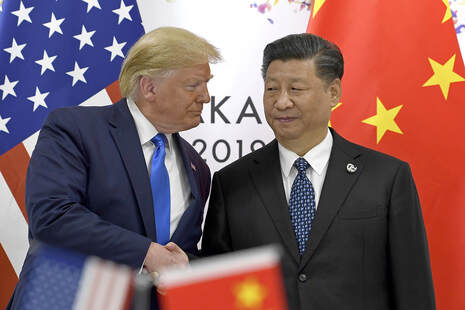
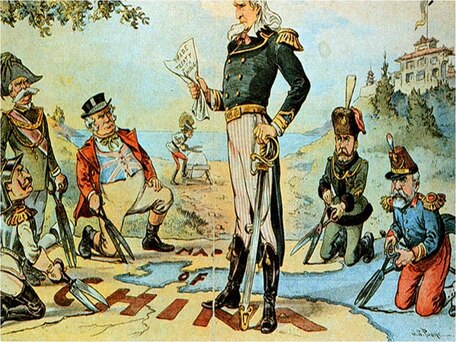
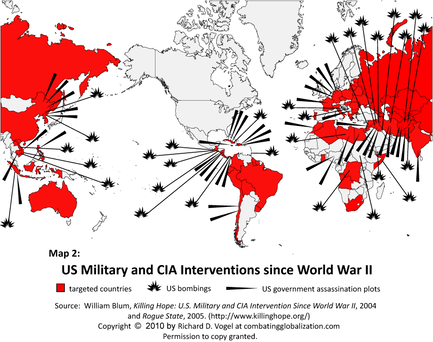
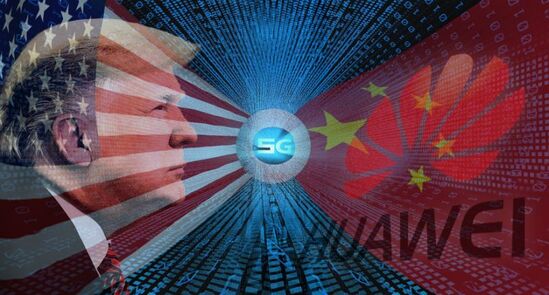
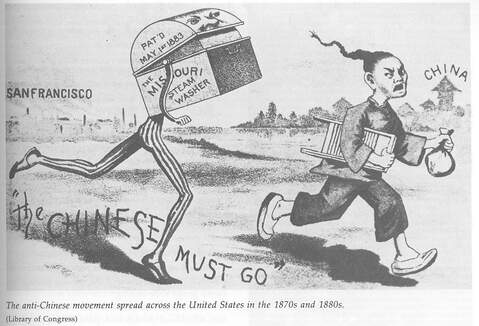
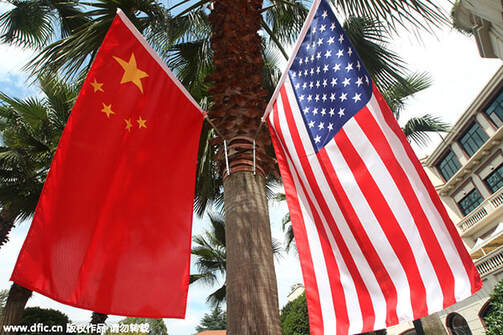
 RSS Feed
RSS Feed